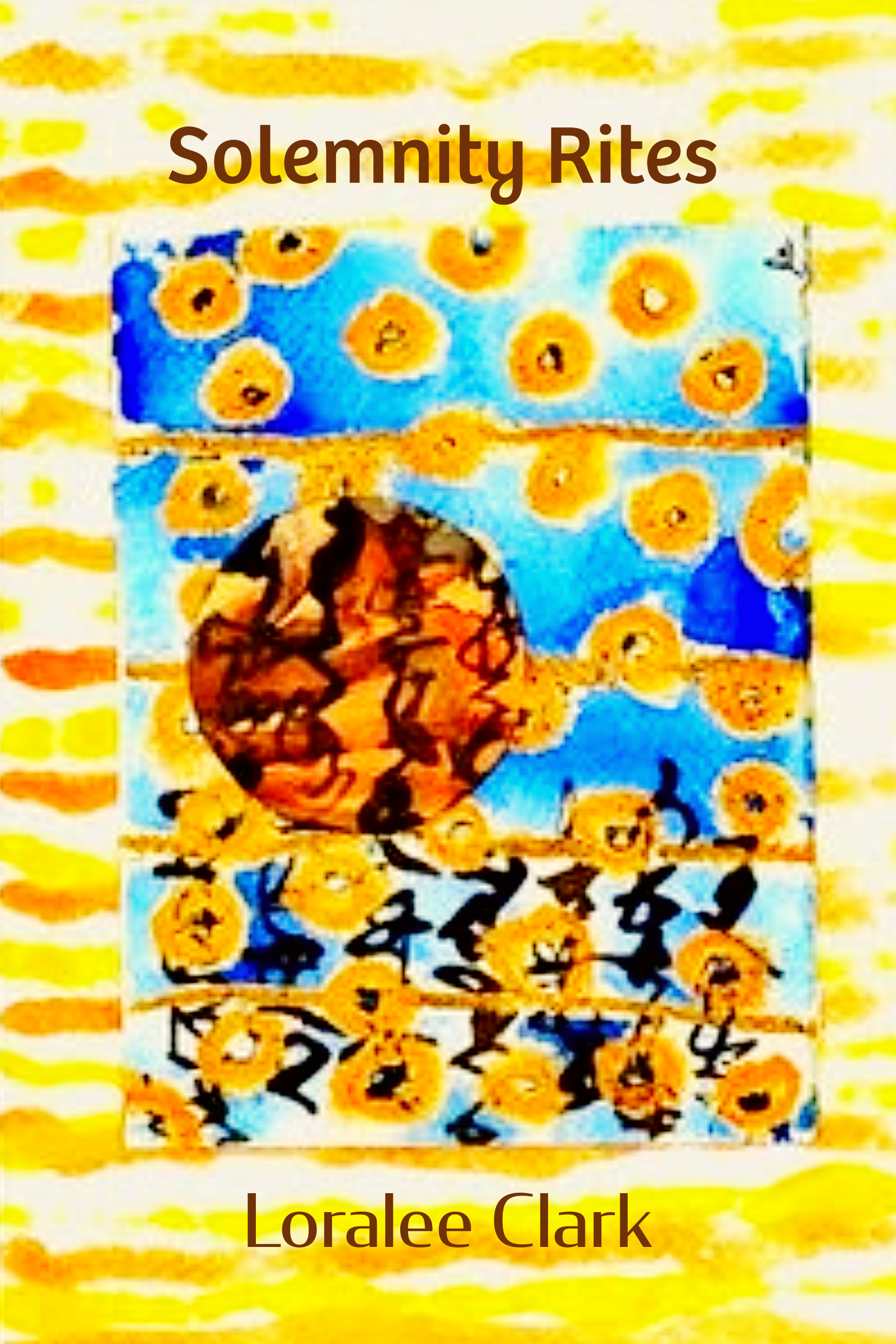
Williamsburg, Virginia Aug 6, 2025 (Issuewire.com) - Solemnity Rites is a collection of poetic works by Loralee Clark, published Summer 2025 by Prolific Pulse Press LLC. Structured into two parts, the book explores profound themes related to life, death, and humanity's connection to nature and the cosmos.
Loralee Clark is a writer who grew up learning a love for nature and her place in it, in Maine. She resides in Virginia now as a writer and artist, with two awesome kids and a loving husband. She writes poetry and non-fiction. Myth is her love language. You can learn more about her at sites.google.com/view/loraleeclark
Get Your Copy: Loralee Clark | Prolific Pulse
Book Review:
Solemnity Rites by Loralee Clark is a visceral, myth-infused poetry collection that weaves the themes of womanhood, ritual, ancestry, and the struggle for finding significance in this insignificant world. Solemnity Rites reclaims poetry as a site of sacred remembering and communal witnessing. It is not just a book but a rite in itself.
"Its a surprise, every time
when I see a beetle
but its really a brittle, curled leaf;
More On Intelliupdate ::
- Shea Lorne, Recognized by BestAgents.us as a 2025 Top Agent
- Precision Perfected: Meeting China's Strict 10-Micron Rail Roughness Standard with Global Leading Grinding Technology
- "North Korea's military parade ignited the market, and investors flocked to PioneerHash to earn stable BTC/ETH/XRP."
- Vacant Home Tax Unjustly Deprives Canadians of Property Rights and Fails to Provide Citizens Residential Guarantees
- New Book Empowers Business Leaders to Navigate Cybersecurity with Confidence and Clarity
a thin stick but its a dried worm,
a bit of bumpy rock but its
a tiny toad and I wonder"
Structured in two parts, "Circulation: Blood Histories" and "Power and Sacrifice: Blood as Practice", the collection immerses the reader in primal landscapes, ancient rituals, and intergenerational memory. "Living Bibles" explores the concept of personal narratives as sacred texts. "New Mexico" reflects on the landscape and cultural significance of the region. "Becoming Human" imagines the profound emotional response of an ancient hominin, likely Homo naledi to the death of a loved one, most likely a mate or mother. In "Gobekli Tepe", the poet conveys how ancient people, through sacred architecture and oral memory, sought to preserve their history and cosmic understanding against the erasure of cataclysm and time.
"And when the endless above crashed into the
earth,
when heavens stars caused fires and a great
flooding,
the waters pulled stones from the mountains,
roots were pulled from the mountains like sheaves
of emmer
and soon all was eclipsed.
The people too went dark:"
"Brynn Celli Ddu: Mound in the Dark Grove" is a meditation on burial mounds and their connection to the divine. Cahuachis Lines discusses the ancient geoglyphs and their meanings. The Work of the Living focuses on the importance of living in harmony with nature. Evolutions of Tongue explores language and communication as evolving forms of expression. Unity concludes the first part with a call for collective strength and resilience.
In the second part "Who We Are", there is a reflection on identity and belonging. Inspired by Gauguin, "A Painting: The Loss of Virginity" explores themes of femininity and societal judgment. Nourishment is a sensory experience of cooking and the connection to the earth. Babes contemplates innocence and the fragility of life. This is not a Pot challenges perceptions of utility and purpose. Gravity discusses the weight of existence and emotional burdens. Revisioning is a call to appreciate the beauty in everyday life and the cycles of nature.
What makes these poems remarkable is their mythopoetic structure. Clark doesnt simply narrate experience; she ritualises it. From the Palaeolithic burial chambers of Brynn Celli Ddu to the desert offerings in Cahuachis Lines and the astral catastrophe at Göbekli Tepe, the book is rich with cultural allusions and spiritual references that transcend time and geography. These rites, whether Mayan, Aboriginal, Neolithic, or personal, serve not only as metaphors but as spiritual frameworks for the poets meditation on life, death, sacrifice, and rebirth.
Clark weaves references to deities like Chaak and Kinich Ajaw, ceremonial tools like sapling altars and cenotes, and practices like menstrual bread offerings and sky burials. She invokes the divine feminine through recurring womb imagery and archetypal feminine labour, birthing, bleeding, feeding, and mourning. Her use of language is lush and elemental: moons time, blood-ready water, cauldron of stars. These poems beg to be read aloud, sung, or chanted. They are not passive observations but active ceremonies, a fusion of lyricism and invocation.
This collection is best suited for readers interested in ecofeminist literature, anthropology, sacred ritual, and mythic storytelling. Poets, spiritual seekers, feminists, and scholars of ancient rites or earth-based religions will find Clarks work profoundly resonant.
Interview:
https://carafinnegan.substack.com/p/author-interview-loralee-clark

Media Contact
Prolific Pulse Press LLC
9197095101
5921 Waterford Bluff Lane#1418
Source :Prolific Pulse Press LLC
This article was originally published by IssueWire. Read the original article here.
8 day's ago
15 day's ago